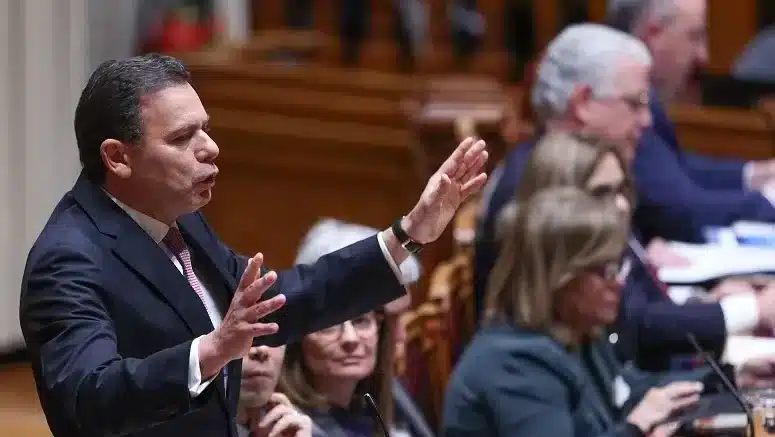Objective: to simplify procedures for businesses/ families
Today’s Council of Ministers, has seen the government approve a set of 30 tax simplification measures, the vast majority of which focus on reducing bureaucracy and state costs. These include changes to the payment date for IUC (‘Single Circulation Tax’/ road fund tax), changes to the payment of Stamp Duty in the case of donations or inheritances and a review of the IES (Simplified Business Information) form.
Minister of Finance, Joaquim Miranda Sarmento, took advantage of the press conference after the Council of Ministers meeting to thank the AT Tax and Customs Authority, since some of the suggestions came from them.
Minister for the Economy, Pedro Reis, described the package as focused on ‘reducing context costs, improving transparency and improving the quality of services’. “What companies can see is more transparency in the relationship, more agility, a reduction in friction, costs and time that this implies for companies. Less waste so that they can focus on what is essential, which is their growth,” he said.
Here are some of the measures that will change the way taxpayers interact with the state in fulfilling their tax obligations:
Simplification of IES (Simplified Business Information)
The government will simplify the IES form, eliminating information annexes such as Q and O.
Single Road Tax (IUC)
From 2026, this tax will have to be paid on a single uniform date, eliminating the previous deadline, set by the vehicle’s registration date. If the tax is less than €100, it will have to be paid by February and if it exceeds that amount it can be paid in two installments, in February and October.
Medical Certificate of Multipurpose Disability (AMIM)
The finance minister announced an agreement with other ministries to enable automatic communication of this certificate, which proves a worker’s degree of mental or physical incapacity, whether temporary or permanent. Up until now, once this certificate had been issued, each user had to go in person to a tax office and to Social Security to benefit.
Vehicle Tax (ISV)
The procedure for accessing the status of registered operator will be simplified, in order to simplify the start of activity in the vehicle import market.
Tax identification for self-employed workers
Tax authorities will allow the automatic classification of invoices for self-employed workers, i.e. those with category B activity, in order to dispense with the need to classify all invoices one by one, differentiating between professional and personal invoices.
Stamp Duty on donations and inheritances
The payment of this tax in the case of free transfers (such as donations and inheritances) will be simplified and it will be possible to pay in installments without having to notify the tax office.
Support for filling in the personal income tax return
Support for all citizens when filling in their personal income tax return will be reinforced, with more information and alerts to simplify this process. The aim, says the government, is to reduce the number of questions put to tax officials and to reduce the number of visits to tax offices.
Renovated Finance Portal
The government is going to update the Portal das Finanças website to make it more user-friendly and it will have an English version.
VAT refunds
There will be a review of the rules for refund requests to give taxpayers the possibility of providing a guarantee in cases where the amount to be refunded exceeds €30,000. Thus, the refund will be made on the spot and the guarantee collected later.
Invoicing rules
The invoice processing regime will be revised, with new functions for the Tax Authority, such as cancelling invoices and sending communications to purchasers.
Automatic submission of the periodic VAT return
It will now be possible to submit periodic VAT returns automatically whenever citizens have not carried out taxable transactions.
Activity declaration for green receipts
When filling in the declaration for starting or changing an activity, the process will be made easier.
Tax inspection
Whenever a taxpayer is being inspected by the Tax Authority, they will now be allowed to regularise their tax situation and ask to be exempt from the face-to-face meeting that was previously mandatory in this process.
Increasing the adoption of AI
Tax Authorities will expand the use of Artificial Intelligence to analyse tax information and respond to requests for help from citizens.
Validity of tax and social security non-debt certificates
A validity period of four months will be established for the issuance of the certificate of non-debt by the Tax Authority, to harmonise with the same period for the document issued by Social Security.
VAT exemption waiver regime
The waiver of exemption from VAT will be reviewed with regard to transactions involving immovable property, such as the need for the prior issue of a certificate for the purposes of waiving exemption.
Deadlines for complying with declaratory obligations
Taxpayers will have until the end of February to submit the necessary documentation, especially for personal income tax (IRS), such as invoices related to professional activities, the composition of the household, and/ or the reimbursement of health expenses. There are currently different dates for these acts.
Withholding tax waived
The state will waive withholding tax for self-employed workers, capital income and property income, if the amount is less than €25.
At the press conference, the government also announced other measures within the package, such as revising the regime for goods in circulation, pre-filling model 22 with losses generated in previous years, setting the minimum amount for Stamp Duty refunds at €10, dematerialising VAT registrations, exempting customs declarations for exports, simplifying customs procedures, communicating the holders of shareholdings in companies, and revisiting the SAF-T regime for company accounting.
Source material: Expresso




















